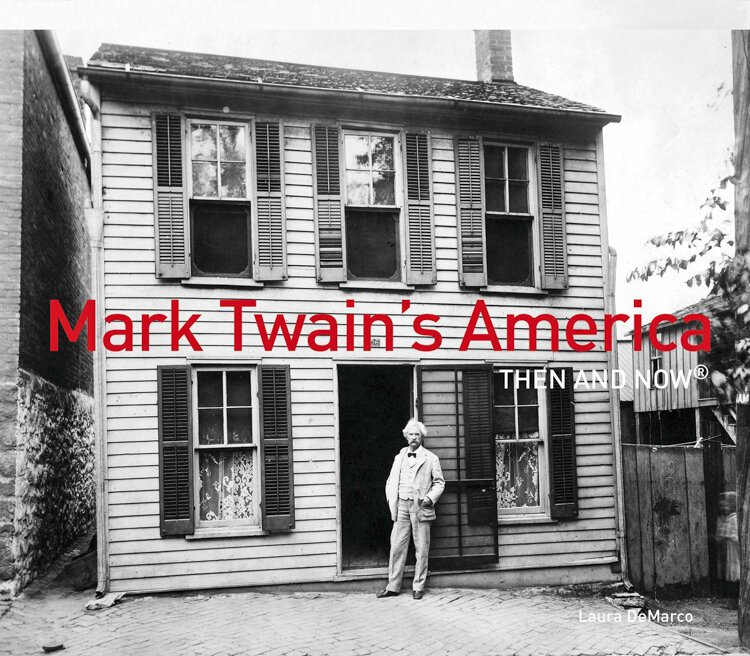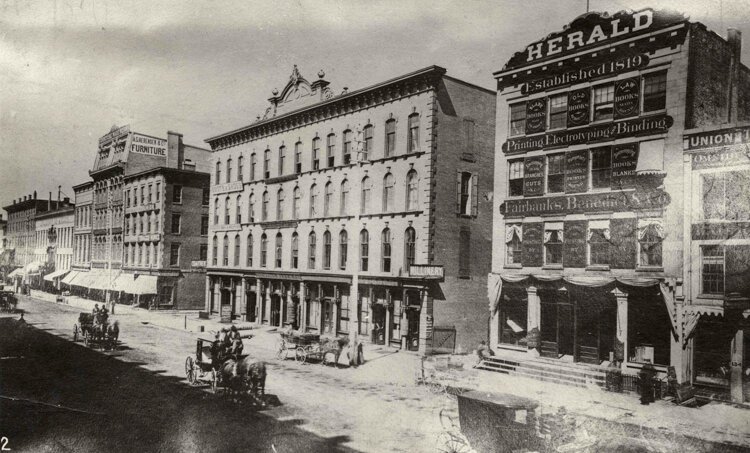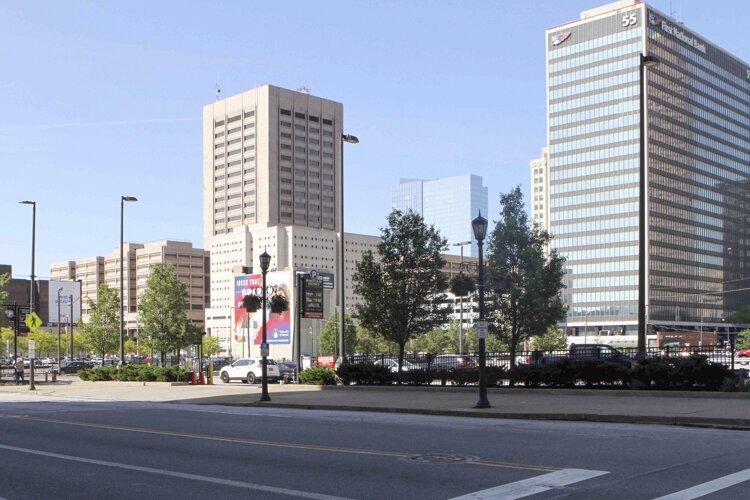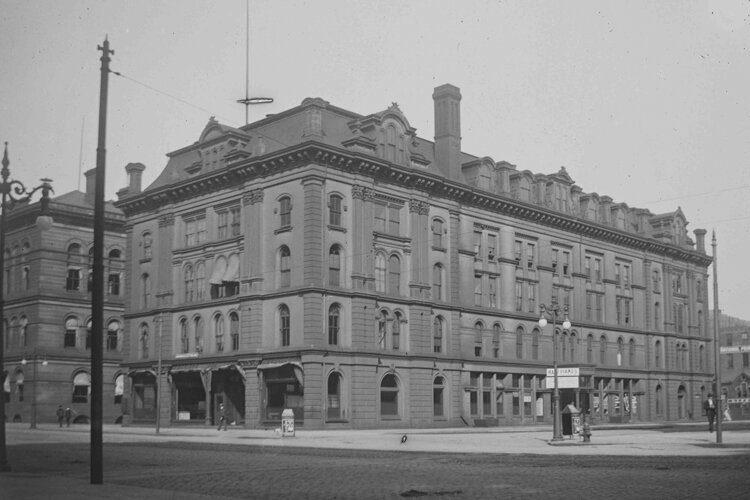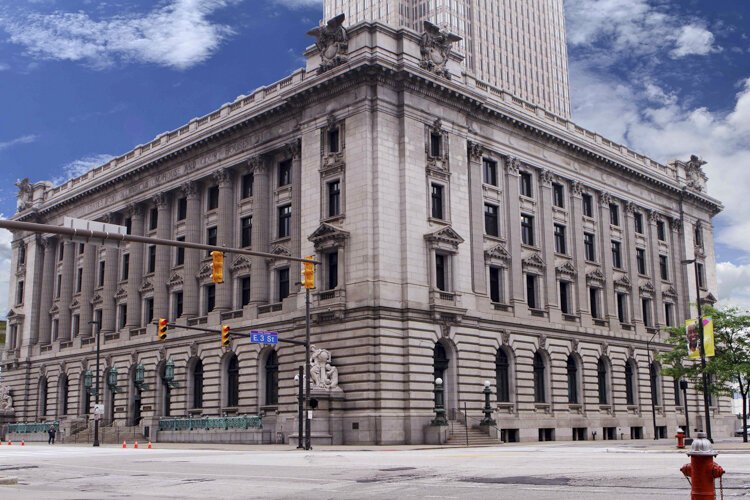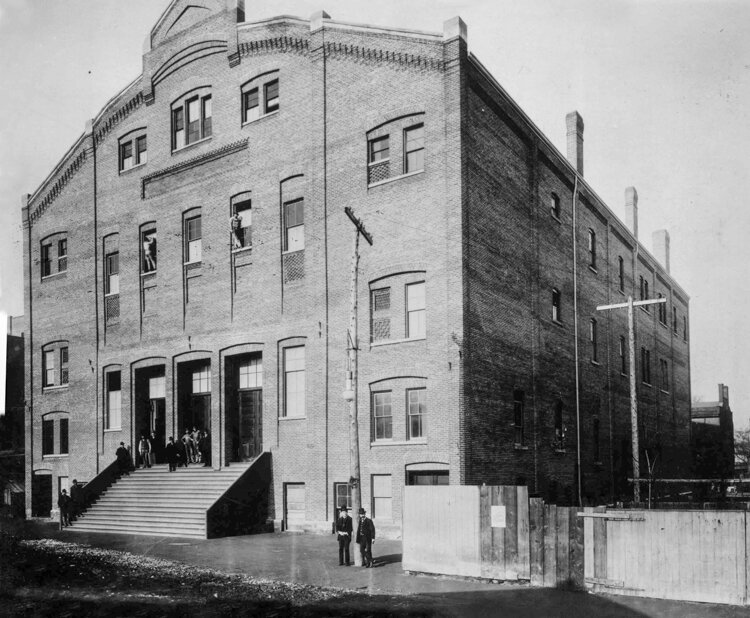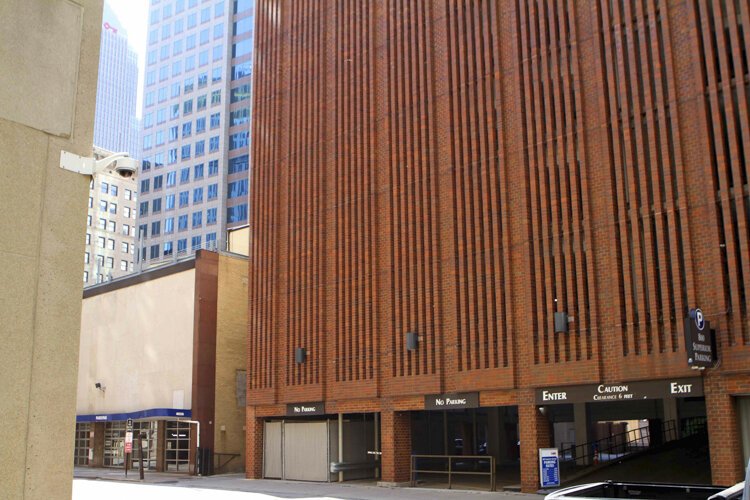Local author delves into Mark Twain's life and mark on Cleveland
Cleveland author and Plain Dealer culture reporter Laura DeMarco has always been fascinated by Cleveland’s past. In 2017 and 2018, she published "Lost Cleveland” and “Cleveland Then and Now,” which examine the rise and fall (and rise again) of the city, neighborhoods, buildings and landmarks that have withstood the test of time.
Now, DeMarco has turned her attention to another fascination: the life of one of America’s greatest writers, Samuel Clemens, better known as Mark Twain. “I’ve always been interested in Mark Twain,” she says. “He really was a self-made man. He was writing to the common people, and his books were sold door-to-door. He was such a great observer, but he always did it with compassion.”
Her latest book, “Mark Twain’s America Then and Now,” looks at Twain in significant places in his life—from his Missouri birthplace to travels to river towns of the great Mississippi to the Wild West in the heyday of the gold rush, Honolulu, the East Coast literary scene, and, of course, his ties to Cleveland along the way. The 143-page book features 69 major locations where Twain visited and lived and 250 photos (from both in Twain’s time and present day).
“What I find interesting, as a writer, is how much of America he did see at a time when transportation wasn’t so easy,” DeMarco says.
“Mark Twain’s America” is on sale locally, and copies will be available for purchase Saturday, Nov. 9, when the Cleveland Public Library hosts DeMarco for a book signing and conversation.
DeMarco says she quotes Twain all the time. Her current favorite Twain quote is “Whenever you find yourself on the side of the majority, it is time to reform (or pause and reflect).” Many of his words hold true today, she says.
“Even though he was born before the Civil War, what he said is still relevant today,” DeMarco says. “Mark Twain wrote about social justice, doing what is right, and criticized the powerful in defense of the weak–always with great wit and empathy. He wrote about the importance of getting out and seeing the world and breaking out of rigid, small-town views, of always learning and growing. He was an anti-establishment iconoclast who took the rich and powerful to task, usually with a wicked stroke of the pen.”
Twain's travels around the country, and the world, are what made him such a great observer of human nature, DeMarco says. “He traveled all over, and his sense of place was so important in shaping his view of the world. He went from being from a small town to such an enlightened thinker.”
But DeMarco really got intrigued when she started learning of Twain’s significant ties to Cleveland. In fact, Twain almost bought the Cleveland Herald, the city's first daily newspaper, on Bank Street (now West Sixth Street).
While on a cruise in 1867, Twain befriended Mary Mason Fairbanks, wife of Herald owner Abel Fairbanks. Twain and Mary became close, and she became his confidant, inviting him to Cleveland. “He really liked Cleveland,” DeMarco says. “She was one of the few people whose opinion he sought.”
But Abel changed his asking price for the paper, and the deal never went through. “I think about how different that would have been if [Twain] had bought the newspaper,” DeMarco says. “What would it be like for our city? If he had stayed in Cleveland, we might have ended up with quite a 19th century newspaper, but it would have been the world’s great loss not to have Mark Twain.”
DeMarco questions what impact Twain could have had, heading Cleveland’s news outlet. “It was probably for the best for Mark Twain that he was unable to buy the Cleveland Herald and had move to on,” she says. “It didn’t take him too long to realize that being a newspaperman wasn’t for him. He needed to be free of the day-to-day grind to write his novels.”
Twain returned to Cleveland in 1868 to launch his famous “Vandal Abroad” world tour at Case Hall, where the Cleveland Public Library now stands. “Because he knew a writer for the newspaper, he figured he’d get a good review,” DeMarco says. Not only did the Herald give him a good review, DeMarco says, the Plain Dealer did as well.
Twain returned to Cleveland in 1895 for a second world tour, entitled “Mark Twain Reading and Talking” (overseas named “Mark Twain at Home”) at Music Hall.
The book signing will take place Nov. 9 at 1 p.m. at the library’s Center for Local and Global History, sixth floor, Louis Stokes Wing, 325 Superior Ave. All of DeMarco’s books will be sold at the event. Click here to register.


